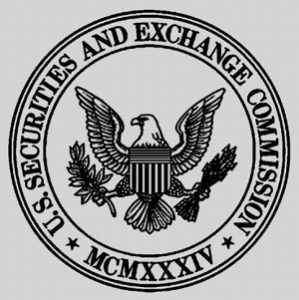 The Securities and Exchange Commission(SEC) proposed an alternative to the so-called Fiduciary rule.
The Securities and Exchange Commission(SEC) proposed an alternative to the so-called Fiduciary rule.
In a press release, the SEC announced it was proposing a new “best interest” standard for all broker/dealers in their trading and investment advice.
“The Securities and Exchange Commission today voted to propose a package of rulemakings and interpretations designed to enhance the quality and transparency of investors’ relationships with investment advisers and broker-dealers while preserving access to a variety of types of advice relationships and investment products.
“Under proposed Regulation Best Interest, a broker-dealer would be required to act in the best interest of a retail customer when making a recommendation of any securities transaction or investment strategy involving securities to a retail customer. Regulation Best Interest is designed to make it clear that a broker-dealer may not put its financial interests ahead of the interests of a retail customer in making recommendations.
“In addition to the proposed enhancements to the standard of conduct for broker-dealers in Regulation Best Interest, the Commission proposed an interpretation to reaffirm and, in some cases, clarify the Commission’s views of the fiduciary duty that investment advisers owe to their clients. By highlighting principles relevant to the fiduciary duty, investment advisers and their clients would have greater clarity about advisers’ legal obligations.”
But the SEC said there was a difference between a broker/dealer and an investment advisor and said investment advisors were held to a higher duty: “In light of the comprehensive nature of our proposed set of rulemakings, we believe it would be appropriate and beneficial to address in one release7 and reaffirm – and in some cases clarify – certain aspects of the fiduciary duty that an investment adviser owes to its clients under section 206 of the Advisers Act.
“An investment adviser’s fiduciary duty is similar to, but not the same as, the proposed obligations of broker-dealers under Regulation Best Interest. While we are not proposing a uniform standard of conduct for broker-dealers and investment advisers in light of their different relationship types and models for providing advice, we continue to consider whether we can improve protection of investors through potential enhancements to the legal obligations of investment advisers.”
What is the Fiduciary Rule?
The Fiduciary rule was a brainchild of regulators in the Obama administration, which- coincidentally or not- did not start to be implemented in the Trump administration.
Fiduciary rule “expanded the ‘investment advice fiduciary’ definition under the Employee Retirement Income Security Act of 1974 (ERISA), to include any investment professional who manages a retirement account.” The website Investopedia stated.
One quirk of the rule is that it is being implemented by the Department of Labor, because it only deals with retirement account- itself a dubious reason according to critics.
In May 2017, the Secretary of Labor announced plans to phase in the rule starting in the summer 2017 and concluding in January 2018.
In March 2018, a Federal Court vacated the rule, effectively ruing the rule was against the rules.
Then, on March 19, 2018, the Department of Labor said in a statement to CNBC it was shelving the rule pending clarity following the decision.
What is a Fiduciary?
A fiduciary is “required to act in the best interest of the principal, the party whose assets they are managing.” Investopedia also noted.
Investment Advisor Vs. Broker/Dealer
In the US, an investment advisor could only be legally an investment advisor if they are a registered investment advisor.
Here’s more from FINRA: “The term investment adviser is a legal term that refers to an individual or company that is registered as such with either the Securities and Exchange Commission or a state securities regulator. Common names for investment advisers include asset managers, investment counselors, investment managers, portfolio managers, and wealth managers. Investment adviser representatives are individuals who work for and give advice on behalf of registered investment advisers.”
While broker/dealers are “a person or firm in the business of buying and selling securities, operating as both a broker and a dealer, depending on the transaction. The term broker-dealer is used in U.S. securities regulation parlance to describe stock brokerages, because most of them act as both agents and principals. A brokerage acts as a broker (or agent) when it executes orders on behalf of clients, whereas it acts as a dealer, or principal, when it trades for its own account.”According to Investopedia.
What does the new rule propose?
The new rule will bind broker/dealers to the best interest standard while investment advisors will remain under the fiduciary standard.








